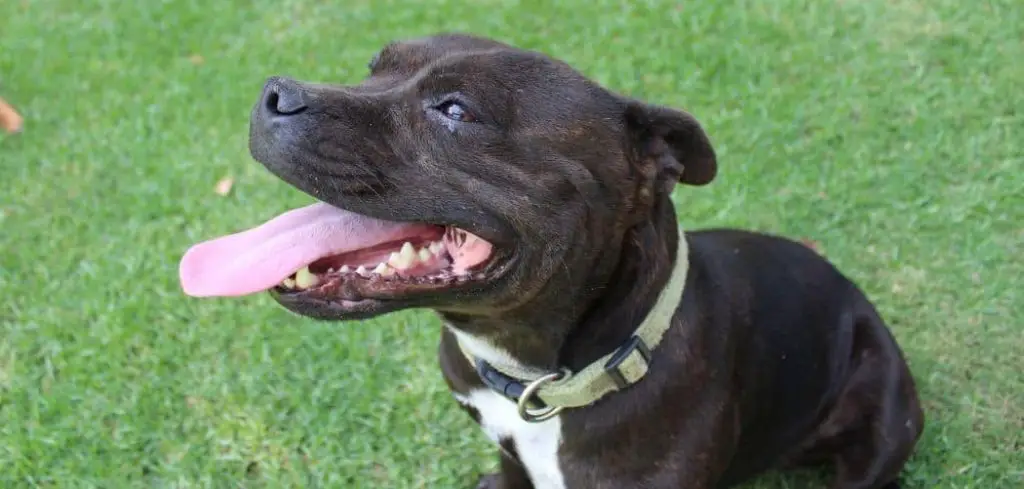A dog coughing without an obvious cause can be worrying for any pet owner. While some occasional coughing may be harmless, persistent or unexplained coughing can indicate underlying health issues that need attention.
We outline the common causes of unexplained coughing in dogs, what you can do at home, and when to seek veterinary help.
Dog Coughing for No Reason: Why It Happens
Unexplained coughing in dogs can arise from a variety of causes, ranging from mild irritations to serious health conditions. Common triggers include environmental irritants, infections, heart or lung disease, and allergies that inflame the airways.
Dogs may cough sporadically due to minor irritants, or they may develop a persistent cough that signals a more significant problem.

Dog Coughing for No Reason: Common Causes
Heart Disease
Heart disease can cause fluid buildup in the lungs and airways, leading to chronic coughing. Conditions such as congestive heart failure or heart valve degeneration put strain on the heart and lungs, producing persistent, sometimes wet, coughing.
Signs may include lethargy, difficulty breathing, or reduced exercise tolerance. Coughing in dogs with heart disease is serious because it indicates that the heart may not be effectively circulating blood, potentially leading to further complications if left untreated.
Read more: Dog Coughing Up White Foamy Mucus (Here’s why)
Kennel Cough
Kennel cough is a contagious respiratory infection that commonly causes sudden, dry coughing in dogs. Even if your dog hasn’t been in a kennel, exposure to other dogs or public spaces can lead to infection.
Dogs with kennel cough often display a honking cough, gagging, or retching, especially after exercise.
While generally not life-threatening, the condition can become serious in older dogs or those with weakened immune systems. Prompt veterinary care and proper isolation help prevent spreading the infection.
Respiratory Infections
Viral or bacterial infections can irritate the airways and trigger coughing. Pneumonia, bronchitis, and other lower respiratory infections often cause wet or productive coughs, sometimes accompanied by fever, nasal discharge, or lethargy.
Even if a dog seems otherwise healthy, infections can progress quickly, especially in puppies, senior dogs, or immunocompromised animals.
Early veterinary assessment ensures proper treatment and prevents serious complications.
Allergies
Allergies to pollen, dust, mold, or chemicals can inflame a dog’s airways and trigger repeated coughing episodes.
This is more common in dogs with a history of atopy or environmental sensitivities.
Symptoms may also include sneezing, watery eyes, and itchy skin. While allergic coughing is typically not life-threatening, chronic airway irritation can lead to secondary infections or worsen respiratory health if not addressed.
Tracheal Collapse
Tracheal collapse occurs when the cartilage rings supporting the trachea weaken, causing the airway to narrow.
This condition often produces a honking or goose-like cough and may worsen with excitement, exercise, or pressure on the neck from collars.
You may notice coughing during play or when pulling on the leash. Tracheal collapse is serious because severe narrowing can impede airflow, leading to labored breathing or respiratory distress, particularly in small breed dogs.
Heartworm Disease
Heartworm disease is caused by parasitic worms that lodge in the heart and pulmonary arteries.
Coughing is a common symptom, especially in the early to moderate stages of infection.
Other signs may include fatigue, reduced exercise tolerance, or weight loss. Heartworm is a serious condition that can damage the heart and lungs, making early diagnosis and treatment essential for a dog’s survival and comfort.
Environmental Irritants
Exposure to smoke, chemical fumes, strong perfumes, or dust can trigger coughing in otherwise healthy dogs. Even occasional exposure can irritate the airway and cause a reflex cough.
You might notice coughing immediately after cleaning, smoke exposure, or when entering a newly scented area.
While these irritants often produce temporary coughing, repeated exposure can lead to chronic airway inflammation.
Read more: Dog Coughing No Other Symptoms (What’s behind it?)
What to Do If Your Dog Is Coughing for No Reason
Monitor your dog closely and note the frequency, duration, and circumstances of coughing. Keeping a symptom diary helps your veterinarian identify triggers and determine if further testing is needed.
Minimize exposure to potential irritants, including smoke, dust, strong cleaning products, and chemical fumes. Maintaining a clean environment can reduce coughing episodes and improve respiratory comfort.
Ensure your dog stays well-hydrated. Fresh water helps thin mucus and soothes irritated airways. A humidifier can also help reduce throat and airway irritation, especially in dry indoor environments.
Observe for patterns that may indicate allergies or environmental triggers. Limiting outdoor exposure during peak pollen seasons or avoiding areas with heavy dust or smoke can help prevent coughing.
Avoid giving human cough medications or over-the-counter remedies unless prescribed by your veterinarian. These medications may be unsafe for dogs and can mask serious underlying conditions.
Read more: Dog Throwing Up and Coughing (Causes explained)
When to Call or Visit Your Vet
Immediate veterinary attention is needed if your dog shows:
Persistent or worsening coughing that does not improve with home care.
Difficulty breathing, labored inhalation, or wheezing.
Coughing accompanied by bluish gums, fainting, or open-mouth breathing.
Signs of lethargy, vomiting, or poor appetite alongside coughing.
Any sudden onset of severe coughing that interrupts normal activity.
Even seemingly mild or occasional coughing can indicate an underlying issue. Timely veterinary evaluation allows for early diagnosis, appropriate treatment, and peace of mind.
Read more: Dog Coughing Due to Allergies (Managing Symptoms at Home)
Key Takeaway
Coughing for no reason in dogs can stem from infections, heart or lung disease, allergies, tracheal collapse, heartworm, or environmental irritants. While some causes are minor, others may be serious or require veterinary intervention.
At-home care includes observing symptoms, reducing exposure to irritants, maintaining hydration, and documenting coughing patterns.
Prompt veterinary attention ensures accurate diagnosis, effective treatment, and helps maintain your dog’s comfort and long-term respiratory health.
